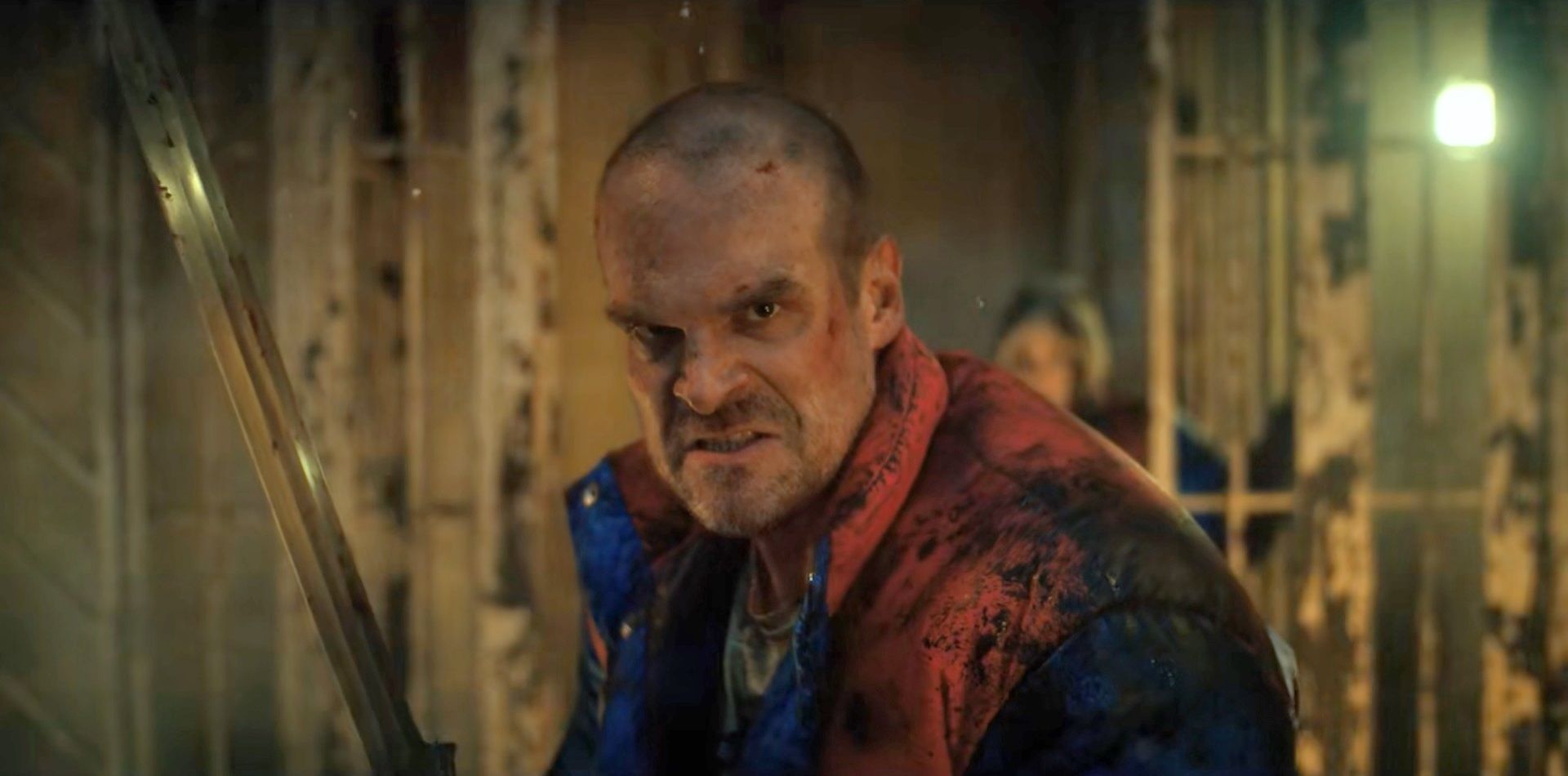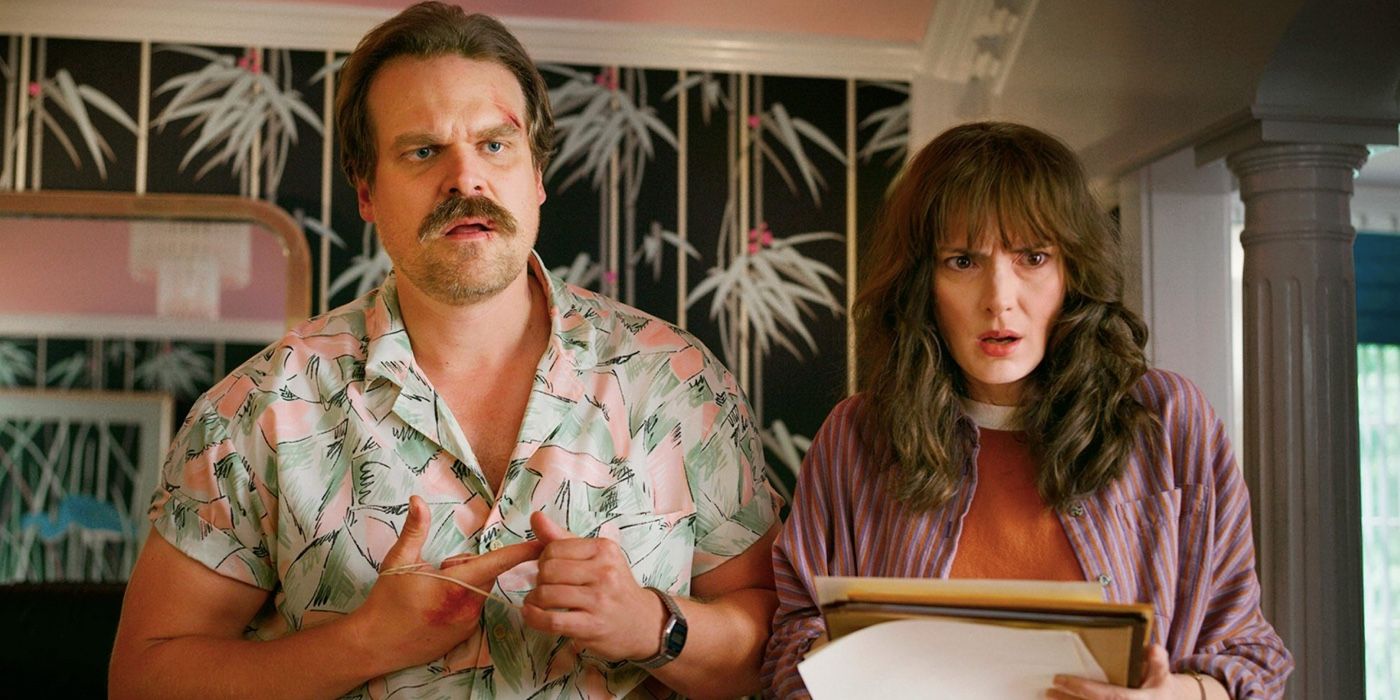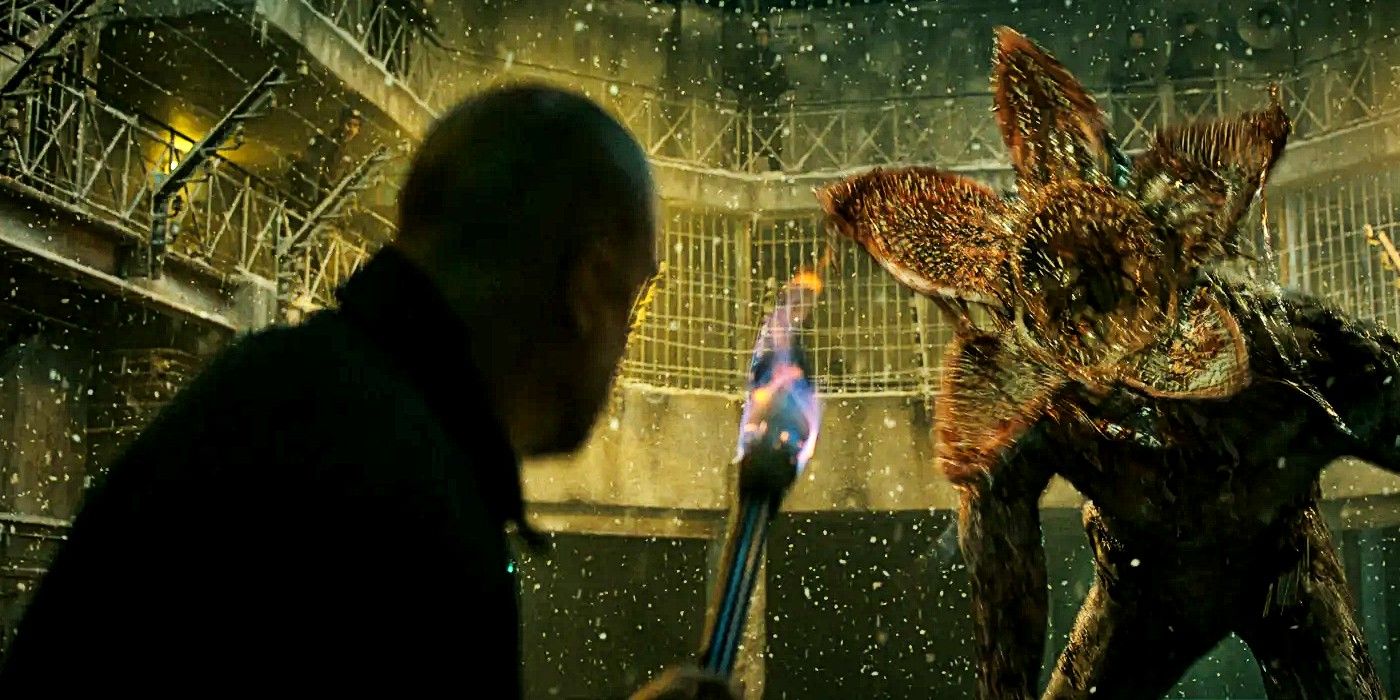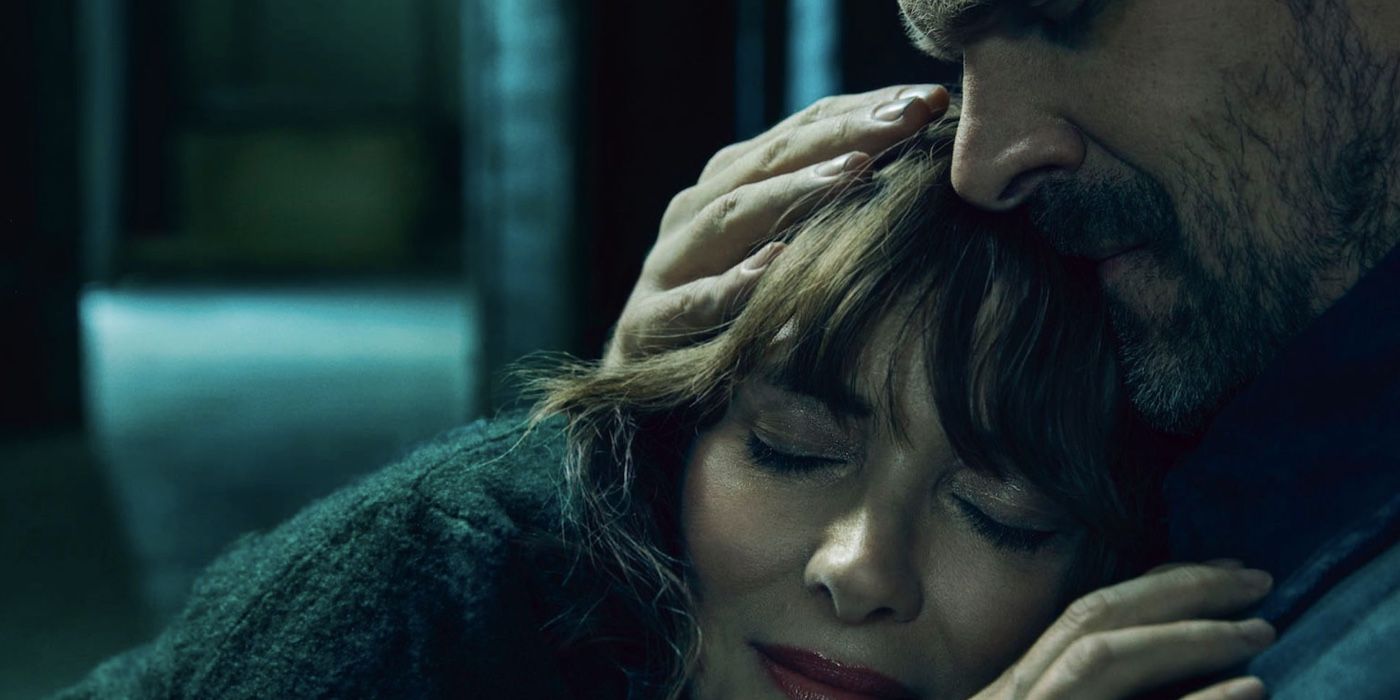The following contains spoilers for Stranger Things Season 4, Volume 2, now on Netflix.
When Jim Hopper died at the end of Stranger Things' third season, it was an unexpected and emotional moment. While characters had certainly died in the series, never before had one of the main characters met such a grisly end. Hopper's death was shocking narratively and emotionally, with the final moments of the season being some of the series' most devastatingly poignant ever. So when it was announced that Hopper would actually be returning in Season 4, there was plenty to be skeptical about. But Stranger Things' fourth season manages to hone in on the character of Jim Hopper in surprising ways and winds up more than earning his resurrection.
Played by David Harbour, Jim Hopper has gone from the traditional chief of police out of an Amblin film in season one, to Eleven's adoptive father in season two, to bona fide narrative-driving star of the series by season three. Fans loved Harbour's inspired performance and were constantly clamoring for more; thus, the Duffer Brothers continued to give the character an increasingly pronounced presence. This is precisely why he was such an effective character to kill off during season three's climax. And while Stranger Things' season three finale was unanimously praised, especially for its handling of Hopper's send-off, nobody (the Duffer Brothers and Harbour very much included) seemed keen on saying a permanent farewell to Hopper.
Thus, when it was announced early into the production of Season 4 that Harbour would be returning as Hopper in the upcoming season, it wasn't entirely surprising, but it was a twinge disappointing. Stranger Things is a show built on insane, life-threatening events happening to (mostly) normal people, so to unequivocally kill off one of the main characters three seasons in lent a lot of weight to the proceedings and raised the stakes. But to then turn around and immediately undo that development via an announcement in-between seasons felt a bit hollow. In spite of all of this, Stranger Things winds up not just justifying bringing Hopper back, but also giving the character and Harbour his best season yet.
Narratively and logistically, the explanation for Hopper's survival is, admittedly, pretty goofy. While audiences and all the characters in the show thought that Hopper had died in an explosion at the Russian laboratory, Season 4 reveals via flashback that there was actually just a little platform beneath him that Hopper fell onto and lost consciousness. This led to the other characters not seeing him and Hopper eventually being taken prisoner by the Russians. But the brilliance of Hopper's return comes not so much from the plot mechanics of the 'how' but rather than thematic and emotional resonance of the 'why'.
Spending the vast majority of the season cut off from everyone he knows, in a Russian prison, Hopper is tortured and beaten until he is broken down to just the core essentials of his character. Whereas Season 3 had seen Harbour playing the role in a more bombastic Fletch-inspired fashion, here, he pars everything back and delivers a quieter, simmering performance that is palpably affecting. The Duffer Brothers and co. very much embrace this challenge, utilizing the opportunity to break Hopper as a character down so that they can then build him back up in an entirely new way.
One of the real highlights of this approach comes in the season's fifth episode, "The Nina Project", in which Harbour delivers a monologue he's been waiting to deliver for years: one in which Hopper details the full extent of his history in Vietnam. As Hopper speaks about Agent Orange and how he and his fellow soldiers were oblivious to its effects, the show drastically recontextualizes the entirety of Hopper's role in the series up to this point. Harbour plays it immaculately, carving to the core of character with startling clarity and making each word of this monologue feel painfully present. It is a staggering accomplishment of acting, writing and filmmaking and one of Stranger Things' very best moments.
This breaking down of the character ultimately leads to an immensely satisfying reconstruction once the characters he knows and loves are reintroduced to his story. When Winona Ryder's Joyce finally fulfills her season-long journey of reaching Hopper in the seventh episode, "The Massacre at Hawkins Lab", her loving embrace of Hopper gives Harbour the stage to bring the character full circle in just a few seconds of screen time. As she hugs him, Hopper goes from disbelief to resistance to acceptance, finding solace in Joyce's embrace. It's a wonderful bit of acting on both Ryder and Harbour's parts, but it's also Harbour punctuating Hopper's four-season-long arc in just a few seconds in a mesmerizing way.
This acceptance leads directly into their later sexually-charged scene, in which they fully embrace their romantic feelings for one another for the first time. Whereas Season 3 featured a 'will they/won't they' back and forth between the two, Season 4 sees Hopper having faced his trauma and history head-on and having come out the other side, ready to accept love. This entire theme of the Russian prison acting as a literal embodiment of the emotional prison Hopper has locked himself inside for years comes full circle in the finale, "The Piggyback".
Here, as the phenomenal Kyle Dixon and Michael Stein-scored version of Kate Bush's Running Up That Hill kicks in, Hopper faces off against a Demogorgon in the Russian prison's gladiator-esque pit, picking up a sword and going to battle. This is an incendiary and thematically-charged culmination on a number of levels, as Hopper faces down a literal ghost of his past (with the Demogorgon being the creature that kicked off the events of the entire series in the first place) with newfound clarity. It also acts as the payoff to his earlier Vietnam monologue, as he delivered that just prior to being thrown into the gladiator pit initially, seeking to channel all of his rage and desperation into that fight. Here, he does, and he ultimately beheads the Demogorgon, using the weaponry of his newfound clarity (i.e. a giant badass sword) to defeat the demons of his past.
Ultimately, between scripts that were fully game to explore Hopper on a deeper level and an all-time great performance from David Harbour, Stranger Things succeeded at earning Hopper's return by making it a resurrection in every sense of the word.
Season Four of Strange Things is now streaming on Netflix.




